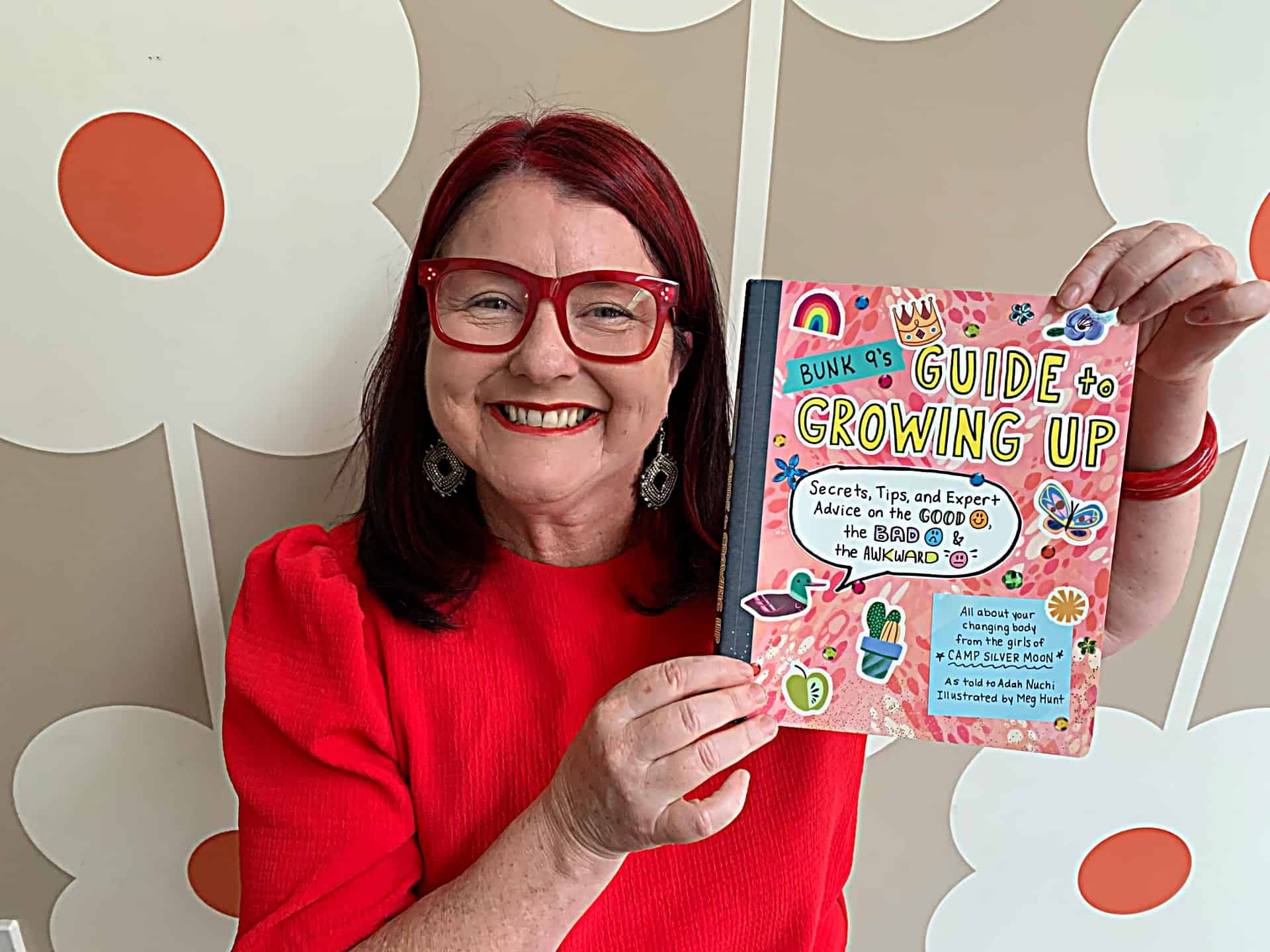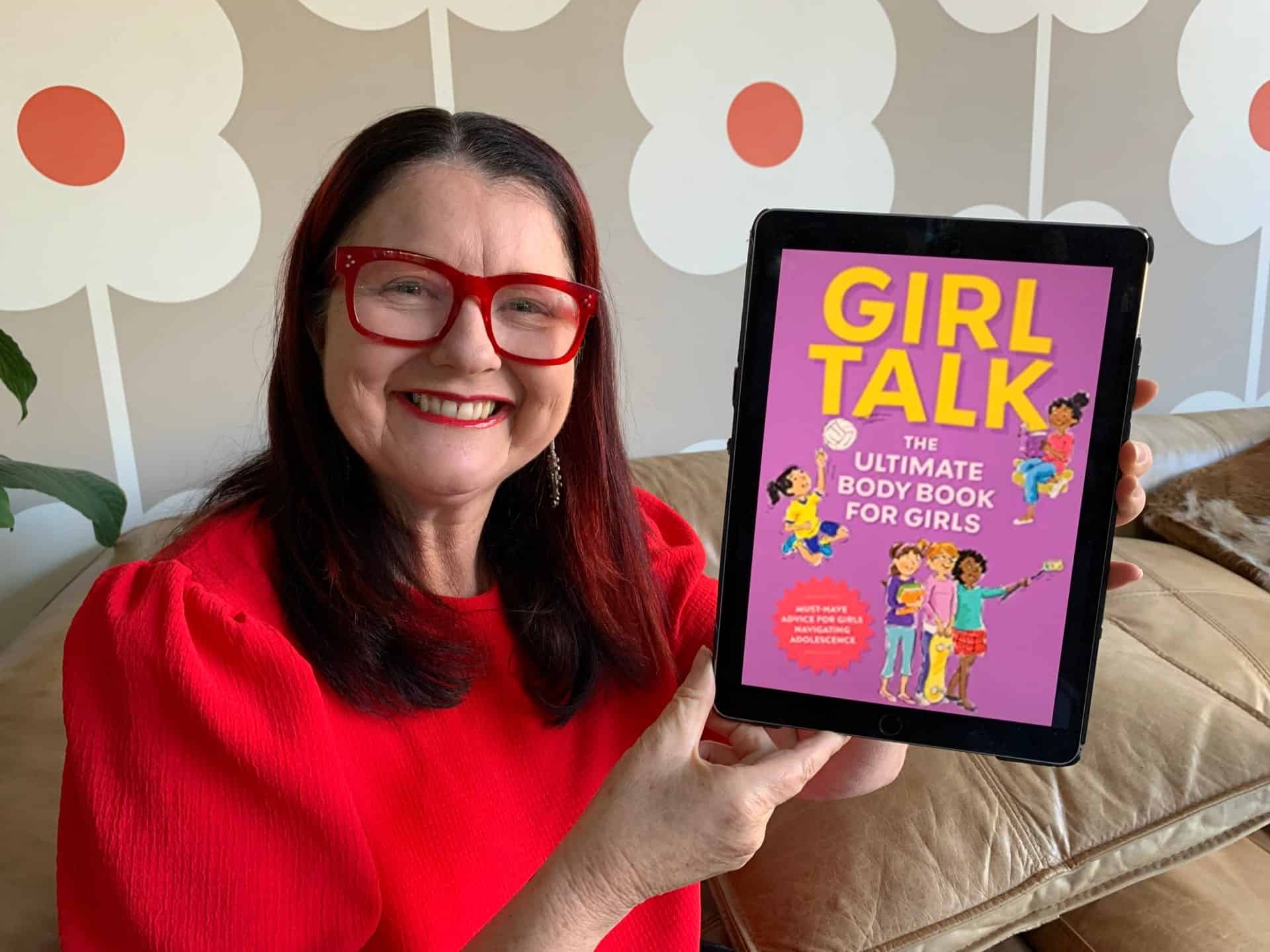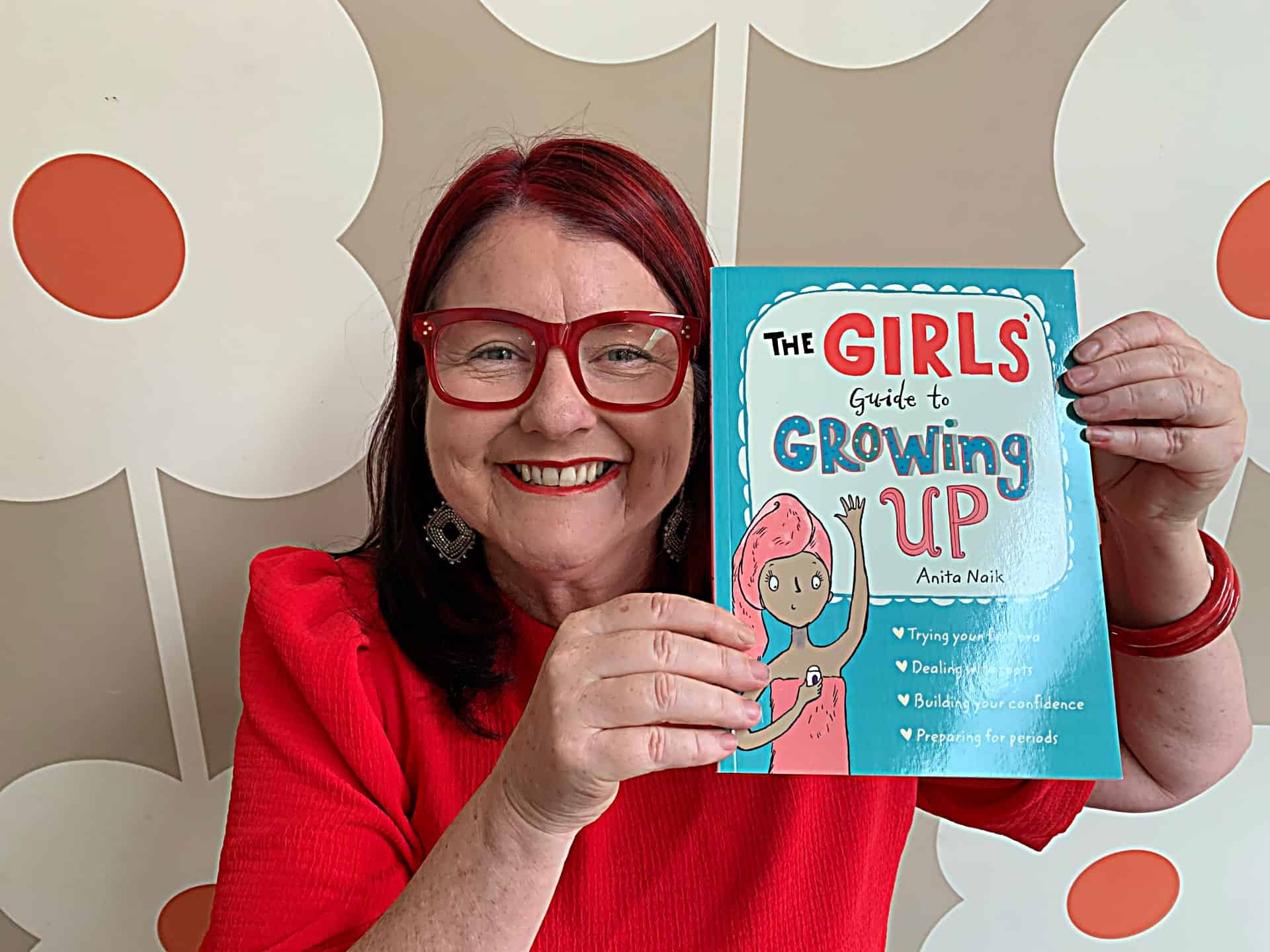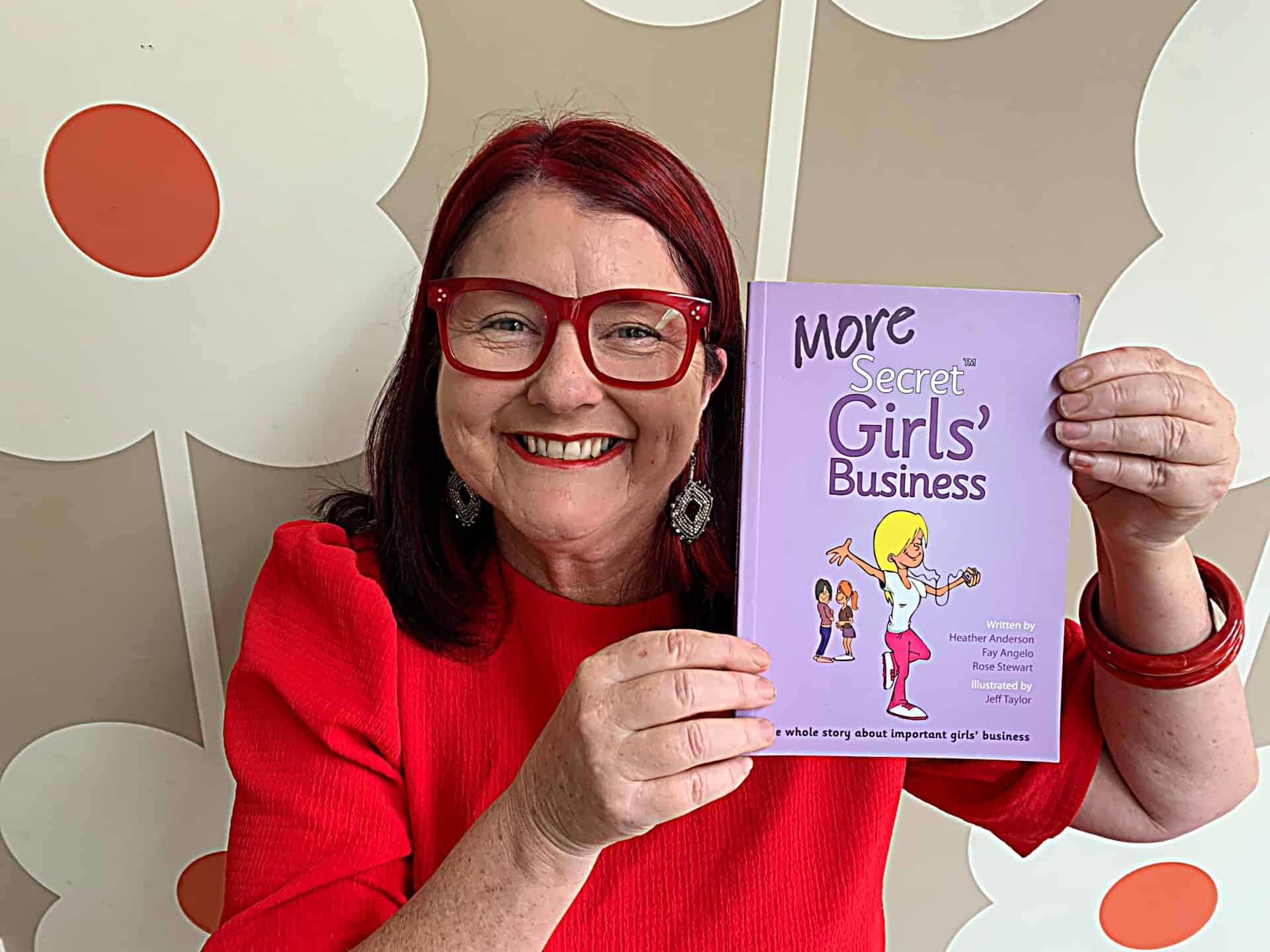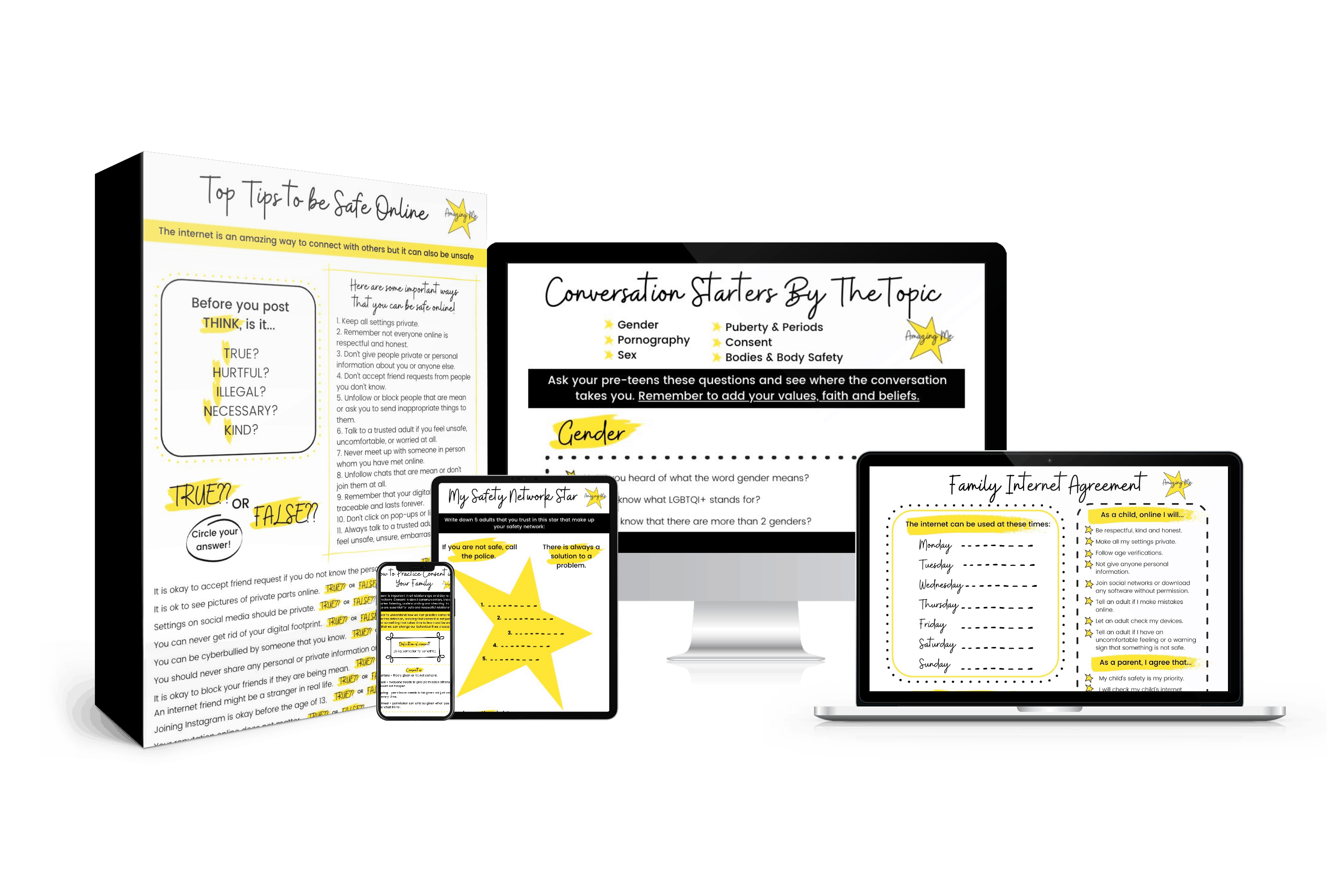Puberty talks with girls - part two
A day after the “How to talk with your daughter about puberty” blog was published, I received more emails than I usually do in response to my blog, so I thought that I would add five more tips about how to talk with your daughter about puberty.
Read “How to Talk with Your Daughter about Puberty” (Part One) here.
Here are 5 additional ways to help you talk with your daughter about puberty in an open and honest way
1. Make it Positive
Talking with your daughter about puberty shouldn’t and doesn’t have to be scary or be negative conversations. If you just talk about the hardships of puberty like blood, pain, moods and acne then your daughter might feel more nervous, scared, ashamed, insecure and anxious. Sure, it’s important not to deny the difficulties, be realistic but it can also be positive. So, let’s change negative mindsets and think about the language that we use. I often tell the kids that I teach that we should have a Puberty Party! Why not It’s worth celebrating!
Read: Ten Tips about Changing Your Family’s Mindset about Puberty from Negative to Positive
You could say ‘When you start going through puberty, I would love to take you out for dinner/go to the movies/go shopping etc to celebrate. or ‘What are things you are looking forward to when you grow up?’ ‘Have you ever thought that puberty can be positive? Can I tell you some of the great things that I experienced about going through puberty?’
2. Prepare Them for Their First Period
I am passionate about positive period education as I had no idea what was happening to my body when my first period started as I was so young and that made me feel ashamed and not normal.
Preparing our children can help them to understand their unique cycle, know when they are on their way, know who they can talk to and practically what products to use and how to use them -even if they are on a school camp. They can learn know what some of the myths are, what the menstrual cycle is all about and also about PMS.
Ultimately this can make them more confident, have higher self-esteem, make wiser choices in the future and even celebrate periods as something that happens so that one day, they can make a baby if they choose to.
You could say ‘I was/not prepared for my first period and I really want you to be. Do you know what a period is/discharge and why it happens?’ or ‘Do you know when you might know that your period is starting?’ or ‘What might you do if you do if you get your period at school or on a camp?’
3. Always Validate and Reassure
Puberty is often a time when kids can feel awkward and that there is no-one to talk to or that no-one understands, so always be non-judgemental and reassure them even if they are being unrealistic. Don’t talk about body shapes, or draw attention to breast development or weight gain, focus more on your child’s strengths and talents. Focus on the internal stuff! Reassure them that all of the changes that they are normal even if they start going through puberty earlier or later. Think about the language that you use.
Read: The Parent’s Guide to Puberty
You could say ‘Everyone is different and your body is changing at different times to your friends because everyone is unique. Focus on your many qualities like ‘I love how you are always positive and generous.’
4. Be Pro-active Don’t Wait for Them to Ask
Parenting is a balancing act. Will I say too little or too much? Sometimes we might think that our children are not ready because they haven’t started puberty or asked any questions but it’s never too early.
You could say ‘I know that you haven’t asked about puberty, but do you know what it is? Have you noticed that any of your friends are going through it?’ or ‘Do you know what period underwear is, we didn’t have that option when I was growing up?’
5. Start Early
In my extensive experience it’s so much easier to start conversations about puberty way before it starts happening. Not only are the children that I teach less embarrassed, but frankly they are sometimes more engaged, open to learning, more positive and unashamed. Even though there is no magical age to start conversations it can be more natural.
If for example they start to notice you having pubic hair, periods or breasts at a very young age and ask questions then answer them factually. If it’s an open conversation over time then the taboo is naturally taken away.
You could say ‘When you grow up you will have hair, breasts or periods like me and that means you can have babies one day, isn’t that cool. Would you like to know what else happens?’
Final Words
The children that I teach each day often come into my classes full of nervous energy but by the end of the lesson, even though they still may feel awkward the tension in the air has changed. It’s not always easy but it can be the same within your family if you talk with your daughter about puberty as early and often as you can, by making it a positive experience, being pro-active and always reassuring them that they are normal. Remember dads are just as important as mums.
So, start talking to your daughter about puberty today.
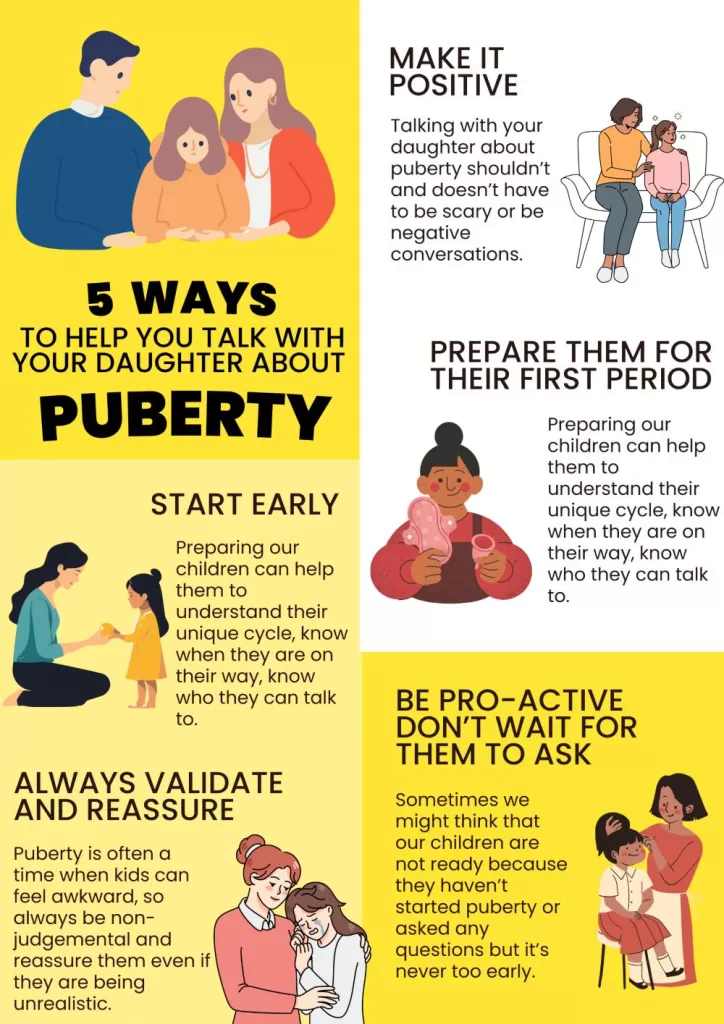
Related books about puberty
What’s the Big Deal About Puberty is my interactive online course about puberty.
This puberty course is ideal for both parents/carers to do together with their pre-teens aged 9-12 years. This can also be completed by your child on their own.
Click below to buy the course for only AUD $69.


